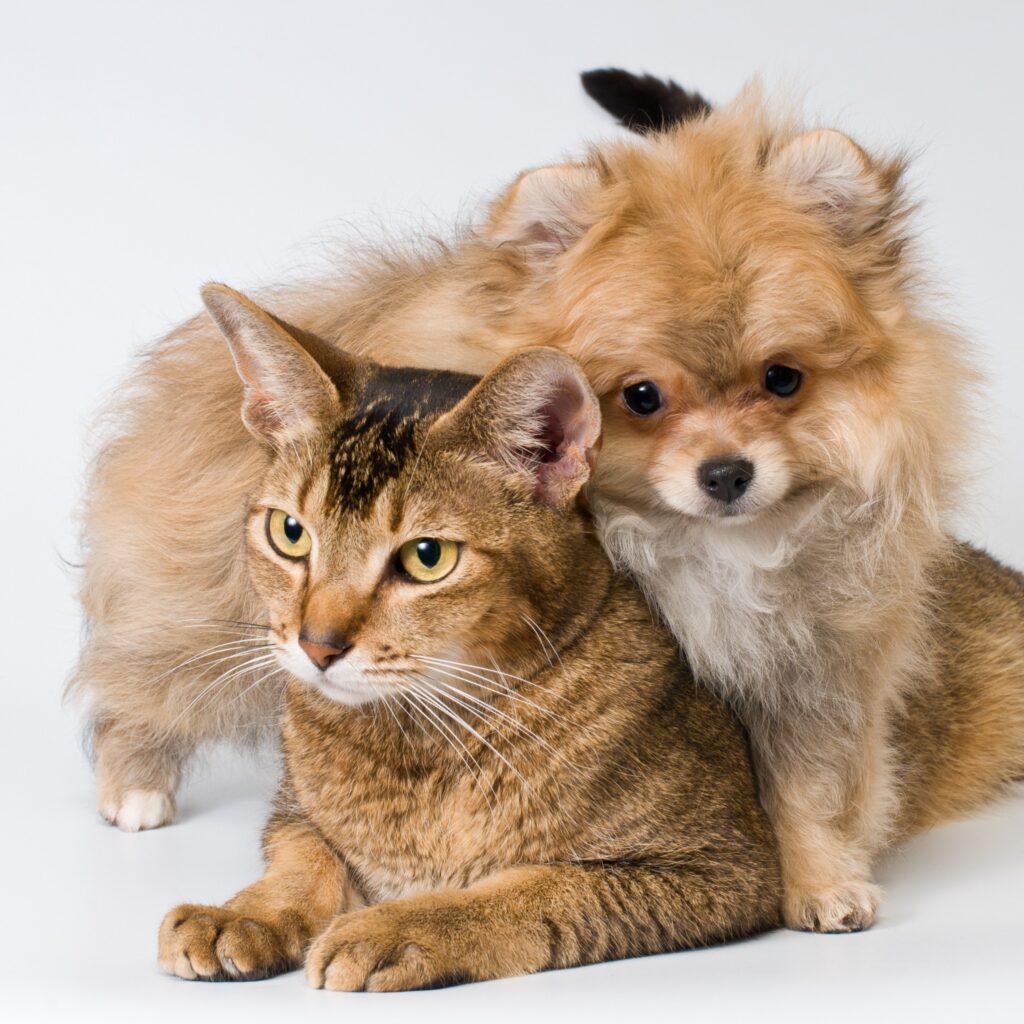As a dog owner, you love your dog to the moon and back, but there’s one thing that just makes you gag: when they raid the litter box like it’s an all-you-can-eat buffet. It’s gross, it’s unsanitary, and it’s just plain baffling. Why do dogs eat cat poop? What’s the appeal?
Hold on to your lunch, because we’re about to investigate the revolting reality of doggie coprophagia (that’s the scientific term for poop-eating). Read on to uncover the reasons why dogs love to eat cat poop and how you can keep their mouths poop-free. Are you ready to join the poop patrol?
Why Do Dogs Eat Cat Poop?
Let’s face it, as much as we love our furry pals, they can have some pretty gross habits. Case in point: dogs eating cat poop. It’s enough to make any pet parent cringe.
But here’s the thing – if your pup is raiding the litter box on the regular, they’re not alone. Plenty of dogs do this. As a vet, I’ve seen my fair share of pooches with a taste for kitty nuggets. And, as a lifelong dog owner, I don’t think I’ve ever owned a dog who *didn’t* think that cat poop was candy.
It’s actually a common canine behavior known as coprophagia. And while it’s definitely disgusting, there are some pretty fascinating reasons behind it.
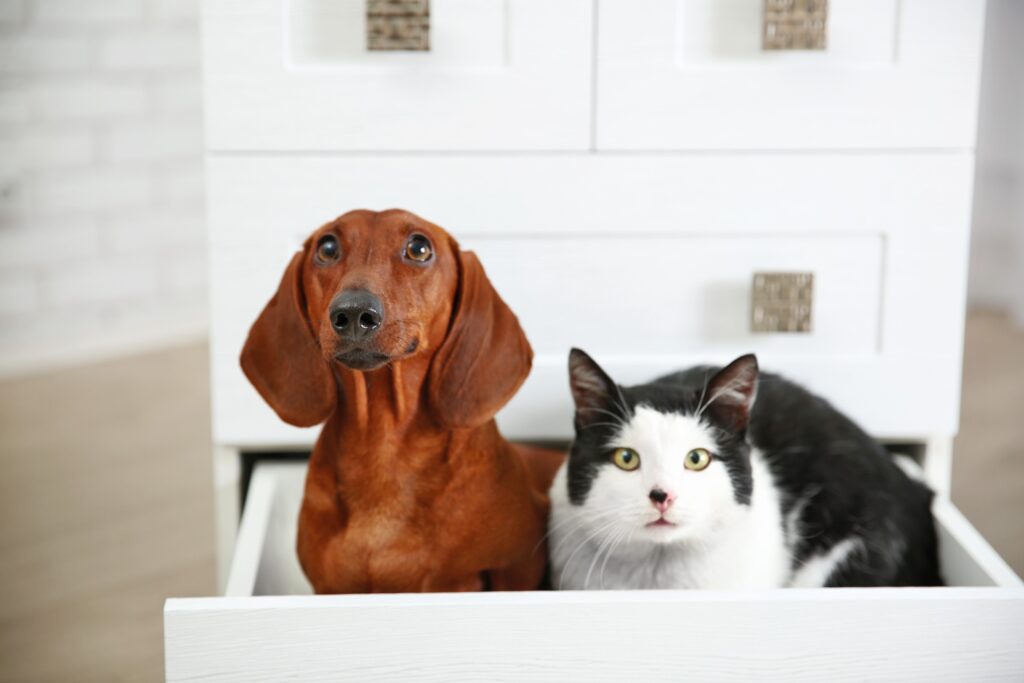
Behavioral Reasons a Dog Eats Cat Poop
First up, let’s talk about some of the behavioral reasons behind this. Believe it or not, a lot of this comes down to natural canine instincts.
Maternal Instincts
It may surprise you to learn that mother dogs routinely consume their puppies’ feces as a way to keep their den clean and free from odors that could attract predators. This maternal behavior is an instinctive response to protect their young. Occasionally, this instinct can persist into adulthood, particularly when a dog is experiencing stress or anxiety.
Scavenging Behavior
Dogs are also natural scavengers. In the wild, they’ll eat just about anything to survive, including the feces of other animals. So when your pup sniffs out a tasty treat in the cat’s toilet, they’re really just following their instincts.
Attention-Seeking Behavior
In some cases, dogs eat cat poop as a way to get attention from their owners. It sounds counterintuitive; but think about it – if your dog knows that eating poop will get a big reaction out of you (even if it’s a negative one), they might just keep doing it for the attention.
Boredom or Stress
Boredom and stress can also lead to poop-eating behavior. If your dog is feeling understimulated or anxious, they may turn to the litter box as a way to cope.
Medical Reasons for Coprophagia in Dogs
While behavioral causes are often to blame for doggy dumpster diving, there are also some potential medical reasons to consider. If your pup suddenly starts eating cat poop out of nowhere, it’s always a good idea to check with your vet.
Nutritional Deficiencies
One possibility is that your dog is trying to compensate for a nutritional deficiency. If they’re not getting enough of certain vitamins and minerals in their diet, they may turn to poop as an alternative food source. This is especially common in dogs on low-quality or homemade diets that aren’t properly balanced.
In fact, a study by the National Academy of Sciences found that nutritional deficiencies can be a major contributing factor to coprophagia in dogs. So if you suspect your pup’s diet might be lacking, talk to your vet about switching to a high-quality, complete and balanced food.
Malabsorption Disorders
Another reason your pup might be snacking on cat poop is that they may have a malabsorption disorder. This means their body is struggling to absorb all the nutrients they need from their food, leaving them with deficiencies and a rumbling tummy. So, they start looking for other things to eat, and cat poop often seems to fit the bill.
Diabetes or Thyroid Issues
Certain health conditions like diabetes or thyroid problems can also cause an increase in appetite and lead to poop-eating behavior. If your dog is suddenly ravenous and eating things they normally wouldn’t, it’s definitely worth getting them checked out by a vet.
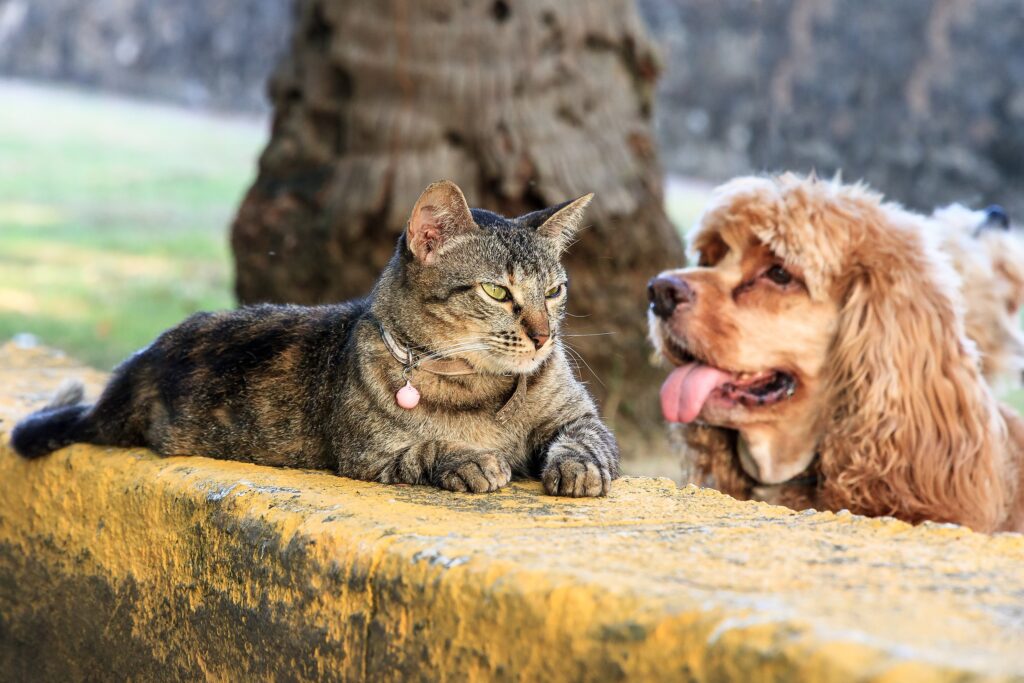
The Dangers of Dogs Eating Cat Poop
There’s no doubt about it, this habit is just plain gross. But beyond the ick factor, there are some serious health risks to consider.
Risk of Parasitic Infections
One of the biggest dangers of this behavior is the risk of parasitic infections. Cats can carry all sorts of nasty parasites like roundworms, hookworms, and tapeworms. When your dog eats infected cat feces, those parasites can hitch a ride right into your pup’s system.
Bacterial Infections
In addition to parasites, cat waste can also harbor harmful bacteria like Salmonella and E. coli, which can cause some seriously unpleasant gastrointestinal issues for your dog such as vomiting and diarrhea.
This is a risk for humans as well. When dogs indulge in such unsavory snacks, they can harbor these bacteria in their mouth as well as their own poop. Licking from your dog, handling your dog or cleaning up after their bathroom breaks can lead to bacterial transmission to humans, potentially causing similar gastrointestinal problems.
Potential Blockages
Another risk to dogs is the potential for intestinal blockages. This is a serious risk if your dog ingests a lot of cat litter along with the feces. Clumping litter in particular can cause serious blockages that may require surgery to fix.
How to Stop Your Dog from Eating Cat Poop
If you’ve ever walked in on your dog indulging in a “snack” from the cat’s litter box, you know how gross and frustrating it can be. But take heart – many dog owners face this issue, and there are proven ways to discourage this unappetizing behavior.
Keeping the Litter Box Clean and Inaccessible
The simplest solution is to keep the litter box clean and out of your dog’s reach. Scoop daily (or more often if needed) and consider investing in a covered litter box or one with high sides. Covered litter boxes with a top entry work best for keeping dogs out. Litter box enclosures are effective as well.
Baby gates are also great for keeping dogs away from the cat’s bathroom. In my house, we keep the litter box in a room that’s gated off from the dog. It’s a simple fix that has worked wonders for preventing unwanted snacking.
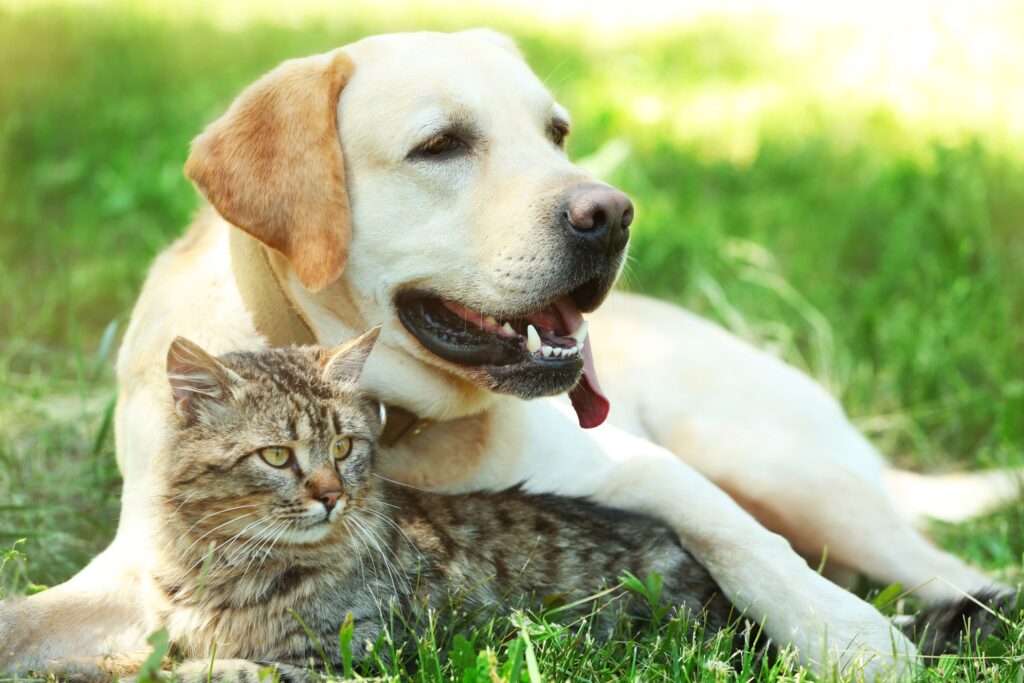
Providing Mental Stimulation and Exercise
Boredom and lack of exercise can sometimes lead to undesirable behaviors like eating poop. Make sure your dog is getting plenty of physical activity and mental stimulation through walks, playtime, training sessions, and puzzle toys.
Using Positive Reinforcement Training
Training your dog to avoid the litter box can be a breeze with positive reinforcement techniques. The moment you notice your pup showing interest in the litter, swiftly grab their favorite toy or a yummy treat to divert their attention elsewhere. Shower them with praise for leaving the litter box alone, and they’ll soon realize that staying away is the way to go.
With consistent training and plenty of rewards, your dog can learn that staying away from the litter box is much more fun than eating from it.
Considering Deterrents or Repellents
If nothing else works, you could try to use deterrents or repellents to keep your dog away from the litter box. There are commercial products available that can make feces taste bad to dogs, or you can try using something like hot sauce or lemon juice.
Just be careful not to use anything that could harm your cat or dog if ingested. Also keep in mind that anything you use in or around the litter box to repel your dog also risks repelling your cat as well.
And remember, these products are not a substitute for training and supervision. They should be used in conjunction with other prevention methods for the best results.
When to Seek Veterinary Help for Coprophagia
While the occasional litter box raid may not be cause for alarm, there are times when eating cat poop can indicate a more serious problem. If your dog is exhibiting persistent coprophagia despite your best efforts to stop it, it’s time to consult your vet.
Persistent Coprophagia Despite Training Efforts
If your dog just can’t resist the temptation of eating cat poop, even after you’ve tried every trick in the book, it might be time to dig a little deeper. Certain health issues like nutritional deficiencies, pesky parasites, or other underlying conditions could be the cause.
Accompanying Symptoms of Illness
If your dog is eating cat poop and also showing signs of illness like vomiting, diarrhea, weight loss, or lethargy, it’s definitely time to call the vet. These symptoms could indicate anything from intestinal parasites to more serious underlying health problems.
Don’t ignore signs of illness in your pet. Early intervention can prevent a mild problem from becoming serious.
Ingestion of Large Amounts of Cat Feces
If you suspect your dog has eaten a large amount of cat feces – and cat litter along with it, it’s best to err on the side of caution and give your vet a call. As mentioned previously, cat litter can cause intestinal blockages, and your vet can advise you on how to keep your pup’s guts moving and avoid serious complications.
Key Takeaway: Tired of your dog’s unwanted snacking habits? A three-pronged approach is your best bet: prevent access to the litter box, train your pup to stay away, and keep a close eye on them. It might take some time and effort, but it’s worth it to break this gross habit for good. If you’re ever unsure about your pet’s health, though, don’t hesitate to give your vet a ring for some professional advice.
Conclusion
So there you have it, folks – the scoop on why dogs eat cat poop. From behavioral quirks to medical conditions, there’s a whole slew of reasons why your pup might be raiding the litter box.
However, with a little bit of patience, some targeted training, and perhaps a visit to the vet, you can help your beloved pet break free from this unpleasant habit.
Remember, your dog isn’t trying to gross you out on purpose. They’re just following their instincts or maybe trying to tell you something’s up with their health. So don’t get too frustrated – instead, focus on positive reinforcement, keeping that litter box squeaky clean, and showering your pup with love (and maybe a few extra treats).
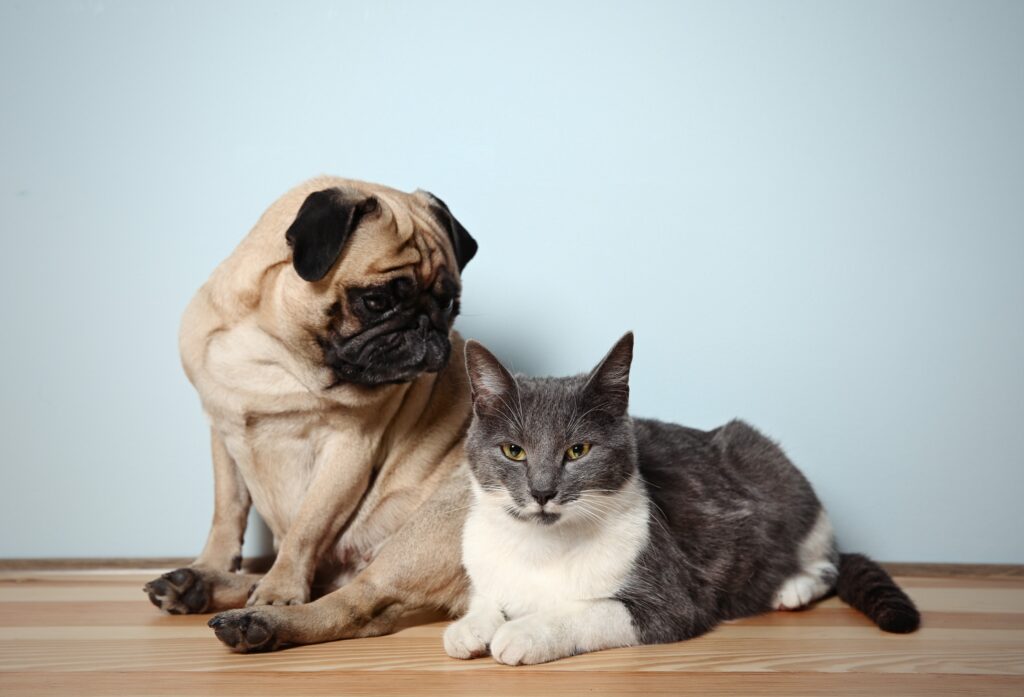
[Image credits: All images are used under license or with permission]

